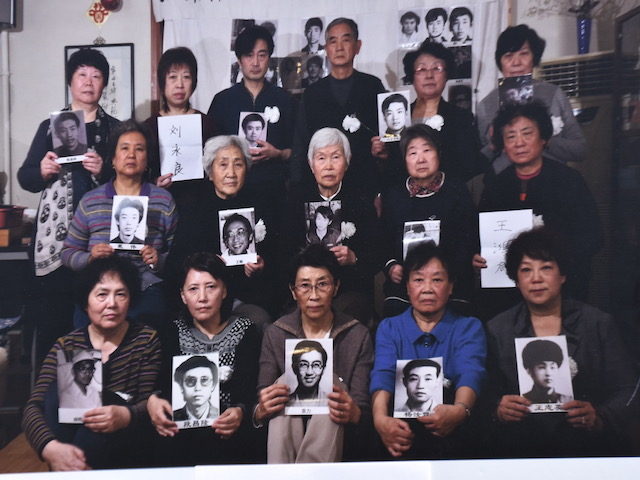A small group of mothers of those massacred by the Chinese Communist Party in Tiananmen Square, Beijing, on June 4, 1989, organized their annual remembrance ceremony in the city on Friday.
Student protests attracting at least an estimated million people occurred on that day 32 years ago, prompting the Communist Party to flood the Beijing plaza with tanks and kill thousands in attendance. Eyewitnesses and survivors have described, throughout the history of the event, gruesome killings of unarmed, peaceful protesters in Tiananmen Square and subsequent crackdowns throughout Beijing, including the massacre of wounded protesters in hospitals.
No exact death toll for the incident exists, though leaked diplomatic cables showed that Western governments estimated at least 10,000 killed in the immediate repression in Tiananmen Square, without counting those killed in hospitals and outside of the main square.
The protesters, inspired by the slow collapse of the Soviet Union and American values, demanded an end to communism and the transition toward a free Chinese Republic. Relatives of the victims have also denounced the killing of Beijing residents simply present in the square at the wrong time, which the Communist Party has never acknowledged.
For decades, the Chinese state refused to acknowledge the massacre at all, heavily censoring any recognition of the event among Chinese citizens and banning terms related to the Tiananmen Square massacre – or even potentially related, like “candle” and “today” on June 4 – from Chinese-controlled social media. In recent years, the Chinese state propaganda apparatus has taken a more assertive stance, attempting to openly justify the mass murder as necessary in the interest of national security.
Hong Kong anti-communist newspaper Apple Daily reported on Friday that while Beijing strives to silence mass memorials and keep younger Chinese citizens ignorant of the history, it has traditionally allowed for quiet, solemn memorials on behalf of the Tiananmen Mothers group.
On Friday, seven mothers made their way to Beijing’s Wan’an Cemetery to honor their children. In 2019, the Wall Street Journal estimated that the Tiananmen Mothers group boasted 127 members.
“The ceremony was led by the group’s spokesperson You Weijie on the 32rd anniversary of the incident,” Apple Daily reported. “Huang Jinping, who lost her husband in the massacre, read the memorial speech saying that Communist Party leaders chose not to listen to demands to fight corruption from peaceful protesters led by students. Instead, they shot them with live rounds and crushed them with tanks.”
While permitted to visit the cemetery, members of the group told the newspaper that the Communist Party had increased their surveillance of the participants. While seven Tiananmen Mothers attended the ceremony, 20 communist spies chaperoned them, co-founder Zhang Xianling said. The state surveillance agents reportedly prevented the public from observing, attending, or supporting the mothers.
China regulates the lives of its citizens through a “social credit system,” which awards points to every citizen based on their loyalty and usefulness to communism. Those with “low” social credit scores can experience bans from public transit, train stations, and airports, and – as in the case of the Tiananmen mothers – increased surveillance and movement restrictions. The mothers nonetheless visit their children’s graves every year, supervised but not yet blocked from doing so.
The Tiananmen Mothers group published an open letter last year condemning decades of Communist Party repression and, in particular, its refusal to acknowledge the event.
China’s state-run Global Times propaganda newspaper acknowledged the anniversary on Friday, a rare move, but praised the massacre as a positive and necessary turning point in the history of Chinese communism.
“From the late 1980s to early 1990s, not only China, but the whole socialist bloc including the Soviet Union and many Eastern and Central European countries encountered a huge wave of ‘liberalization’ or ‘democratization,’ which in fact was Westernization,” the Global Times narrated, describing this as the “darkest hour” in Chinese history.
“When some Chinese people, officials and intellectuals, engaged with the world and saw the advancement and prosperity of the West,” the propaganda outlet claimed, “through traveling abroad, listening to VOA news, watching Hollywood movies and drinking Coca Cola, they felt shocked, and lost the confidence to keep going on the path of socialism, said some analysts.”
Killing these Chinese people resulted in the ongoing success of the Communist Party, the Times concluded.
Chinese Foreign Ministry spokesman Wang Wenbin did not acknowledge the anniversary according to the official transcript of his daily briefing published by the ministry, but Radio Television Hong Kong (RTHK) noted that he did use the opportunity to condemn the United States for its alleged “serious human rights problems,” without elaborating.
Hong Kong has traditionally held the world’s largest remembrance ceremony for the victims of the Tiananmen Square massacre. In 2020, following a year of protests, the Beijing-controlled government there attempted to ban the traditional assembly in Victoria Park, claiming it necessary to prevent the spread of the Chinese coronavirus. Hong Kong officials similarly banned the event this year despite the low number of coronavirus cases in the city and arrested organizers of the event. Hong Kong also shut down the city’s June 4 museum, citing unclear health regulation issues.
“If this right [to mourn] is not given, I think it can’t be justified, and I also can’t accept it,” You Weijie, a Tiananmen mother, told Hong Kong’s Commercial Radio this week.

COMMENTS
Please let us know if you're having issues with commenting.